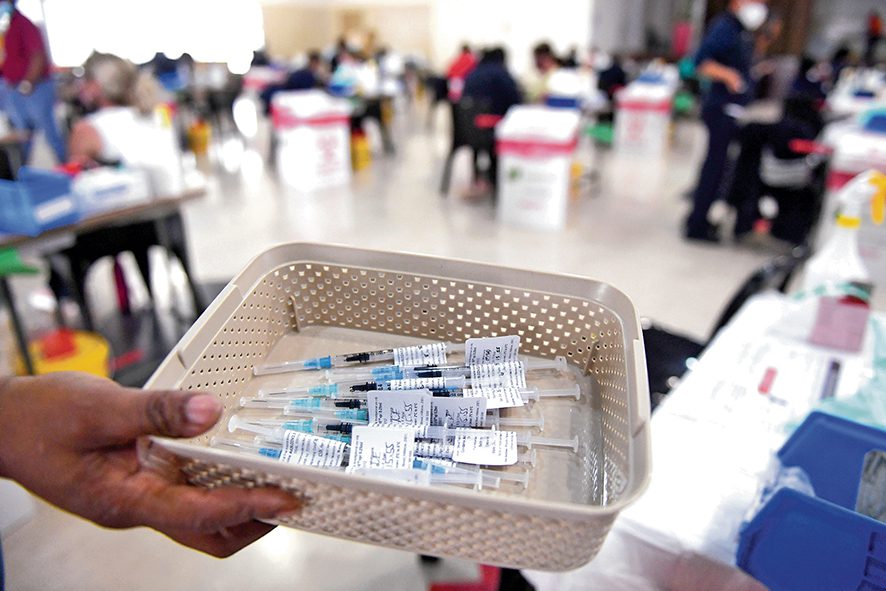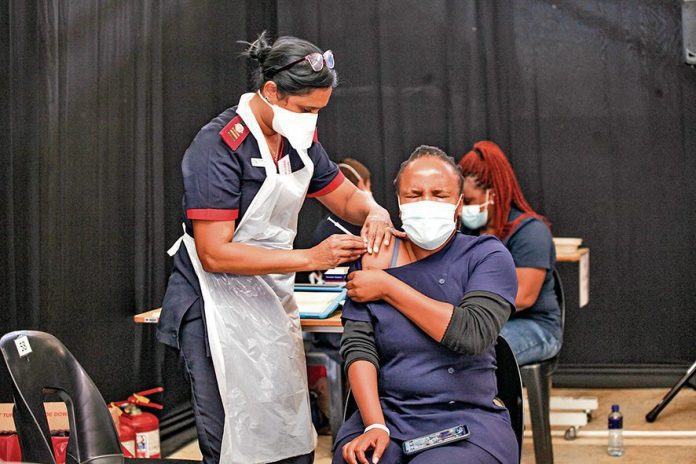Johannesburg – With powerful pharmaceutical companies having already made their intentions clear that they will reject any request by poor countries to be given a temporary waiver on the agreement on intellectual property rights pertaining to Covid-19 vaccines, South Africa is now pinning its hopes on rich nations that they will appeal to their conscience and sway the World Trade Organisation (WTO).
The WTO agreement on Trade-Related Aspects of the Intellectual Property Rights (TRIPS) is a legal agreement among all member nations of the global organisation.
South Africa and India are currently leading a campaign to lobby the WTO to bend the rules and remove bottlenecks that will allow poorer nations to access and manufacture Covid-19 vaccines at a rapid rate.
The two countries, supported by hundreds of other nations, believe that the move will lead to a substantial proportion of the population being vaccinated and thereby achieving the goal of herd immunity. The matter has been tabled before the WTO.
If the proposal sees the light of day, it would lead to a greater supply of Covid-19 vaccines, treatment and diagnostic tests being produced globally.
The Department of International Relations and Cooperation said South Africa was lobbying extensively against vaccine nationalism.

“South Africa and India have tabled the issue and we are lobbying for support from other countries. But there hasn’t been any movement in terms of the decision. As you can imagine, the rich countries of the North and in the West are not too keen because they are benefi ting from the current arrangement. These companies that worked on these vaccines are milking it,” said department’s spokesperson Clayson Monyela.
He said under the current status quo, the poorer countries that are struggling financially are unable to access and buy, or even manufacture the vaccines, which meant that their populations were at a greater risk of dying as a result of Covid-19.
“It is difficult to tell whether the rich countries would come around and what the timelines are. But we continue to raise this matter sharply. Besides, in multilateralism and diplomacy you cannot give fixed timelines to such matters and you can’t even confidently say whether you’ll prevail or not,” said Monyela.
Lawmakers, supported by several human right and non-profit organisations in the US, have already approached the Joe Biden-led administration to support the move.
Adam Hodge, the spokesperson for the US trade representative, said Biden’s government was focused on assisting poor nations by expanding global vaccination, manufacturing and delivery as a critical component to ending the pandemic.
“This includes exploring every avenue to coordinate with our global partners and evaluating the efficacy of the proposal put forward by South Africa and India,” he said.
The National Education, Health and Allied Workers Union has also raised concerns in what it calls “vaccine imperialism” in which richer nations are colluding with big pharmaceuticals at the expense of poorer countries.
KwaZulu-Natal University’s specialist in public health medicine Dr Velile Ngidi said that because of the monopoly, pharmaceuticals were also charging exorbitant rates.
“There is also inflation of prices, which is disadvantaging Third World countries and that is why developing nations are vaccinating at an extremely slow rate.
“The motion on a waiver is to lobby global organisations to persuade pharmaceutical companies to allow other countries to manufacture their own vaccines,” said Ngidi.
Follow @SundayWorldZA on Twitter and @sundayworldza on Instagram, or like our Facebook Page, Sunday World, by clicking here for the latest breaking news in South Africa. To Subscribe to Sunday World, click here.
Sunday World



